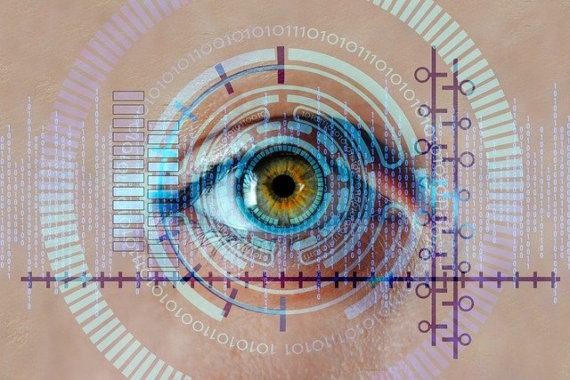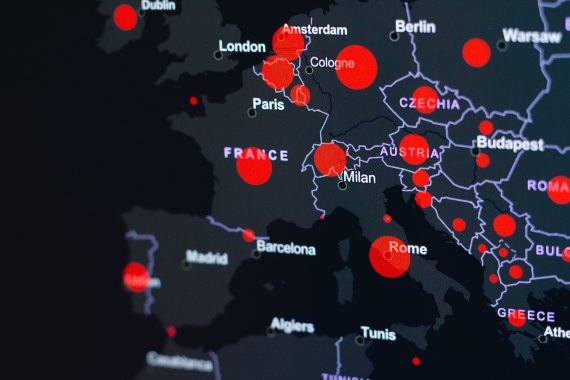New technologies like blockchain can be instrumental to take social development to scale, especially in a post-Covid 19 world. But what are some of the green shoot areas where it can be applied most effectively? This article takes a look at three areas of application, and backs them with use-case examples
Covid-19 has hit those the hardest who already lacked socio-economic necessities. With pandemic response being prioritised, many opine investment in social development may fall on the backburner when it is most needed. In this backdrop, can technology innovations help address the issues such communities face, and scale up solutions effectively?
Amongst technologies that enable social impact, blockchain is demonstrating its utility with several examples globally. Its applications in the realm of identity management, public services and financial access can enable effectiveness, efficiency and marketplace facilitation, and help create social impact at population scale.
Identity management and blockchain
Identity systems are unavailable in many countries. Even where it is, the data is unreliable and non-secure. Globally, ~1 billion are estimated living without a proper ID, and ~2.5 billion still unable to access basic services like a bank account. Microsoft and Rockefeller Foundation’s ID2020 project is reversing this, using blockchain, biometrics and credentials issued from various institutions to create a digital identity for such people.
Blockchain-based identity applications can serve many interventions. The World Food Programme is using it to disburse food aid to Syrian refugees in Jordan. This ensures aid reaches the intended beneficiary while avoiding inflated invoices, since paper-based vouchers are prone to theft and corruption. The camps’ stores where refugees buy food have biometric scanners, which check the customer’s identity and debits the amount from their account. All purchase data is recorded using blockchain. The WFP receives a weekly record from the stores, matches it with the data and reimburses them. Similarly, Canada’s Hypergive uses a blockchain-based food wallet for the poor to combat racketeering. It tracks transactions real-time and ensures purchases can only be made by the person identified by the card. Using blockchain to verify identities extends to schools and patients too, not just refugees and the poor.

IXO, makers of the first blockchain protocol for impact measurement, launched Amply, a blockchain-based identity app to record children’s attendance in South African schools. It releases government subsidies to the schools only when student enrolment achieves specific benchmarks, thus reducing chances of benefit fraud. Factom uses a blockchain-based data registry to create a patient’s medical identity and information and make it securely accessible across clinics. This is useful in countries that lack systems for recording medical history.
In all the examples, blockchain-based identity management reduced misuse and fraud, while keeping records secure and immutable. Thus, effectiveness in interventions improved social impact.
Public services and blockchain
Creating efficiency in delivery is the main motivation when it comes to blockchain application in public services. Kenya introduced a blockchain-based bond to mobilize micro-savings to finance the government, with many savers being first-time investors in government securities. HACERA and the World Bank launched a blockchain platform for public health officials to get information-at-scale, so that they can efficiently control Covid-19. It synthesizes data from various sources, reconciles and identifies errors to ensure validity. Bank of East Asia’s Blue Cross uses blockchain to speed up the processing of health insurance claims.

In Ghana where ~78% of land is unregistered, Bitland is settling land disputes using a distributed digital ledger to record land registration titles. KfW is doing a trial with Burkina Faso’s Finance Ministry to use blockchain across tendering, contract design and payment, to make the latter’s public finance management efficient. India’s Akshaya Patra Foundation piloted a blockchain project with Accenture to streamline its supply chain of providing cooked mid-day meals to government school children.
Financial access and blockchain
In financial access, Spain’s EthicHub used blockchain smart contracts to create a peer-to-peer crowdfunding marketplace for farm workers where they can invest surplus funds and get access to affordable credit. WeTrust in the USA uses blockchain in its alternative financial platform for collaborative savings, lending, and insurance, thus enabling financial inclusion whilst ensuring more capital remains with users. Socialsuite, a social impact solutions provider, partnered with IXO to pilot Australia’s first blockchain smart contracts to mobilise funding based on verified social impact. South Korea’s Pan-Impact Korea pioneered the world’s first blockchain-enabled social impact bond, the Smart SIB. Traditionally, SIBs are executed as private loan contracts, unlike traditional bonds that can be easily traded and liquidated. This lack of securitisation makes them risky and tough to scale up. Smart SIB used blockchain to create securitisation, facilitating a marketplace for investors to transfer units, trade, liquidate, view accounts, check incomes and prove identities securely, thus overcoming the limitations to scaling up social impact bonds.
Conclusion
In conclusion, we observe blockchain applications that demonstrate social impact by bringing in benefits of improved effectiveness, efficiency and marketplace facilitation. But more importantly, it helps us to do so in a manner that is easily replicable and scalable, which is essential given billions across the world still require social development. Scaling up blockchain applications is one way to ensure innovations improve maximum lives. Isn’t that what the ultimate purpose of technology should be?
Jae-Hoon Kwak,
CEO, Pan-Impact Korea
and
Sourajit Aiyer, Consultant,
South Asia Fast Track Sustainability Communications
Comments on this publication